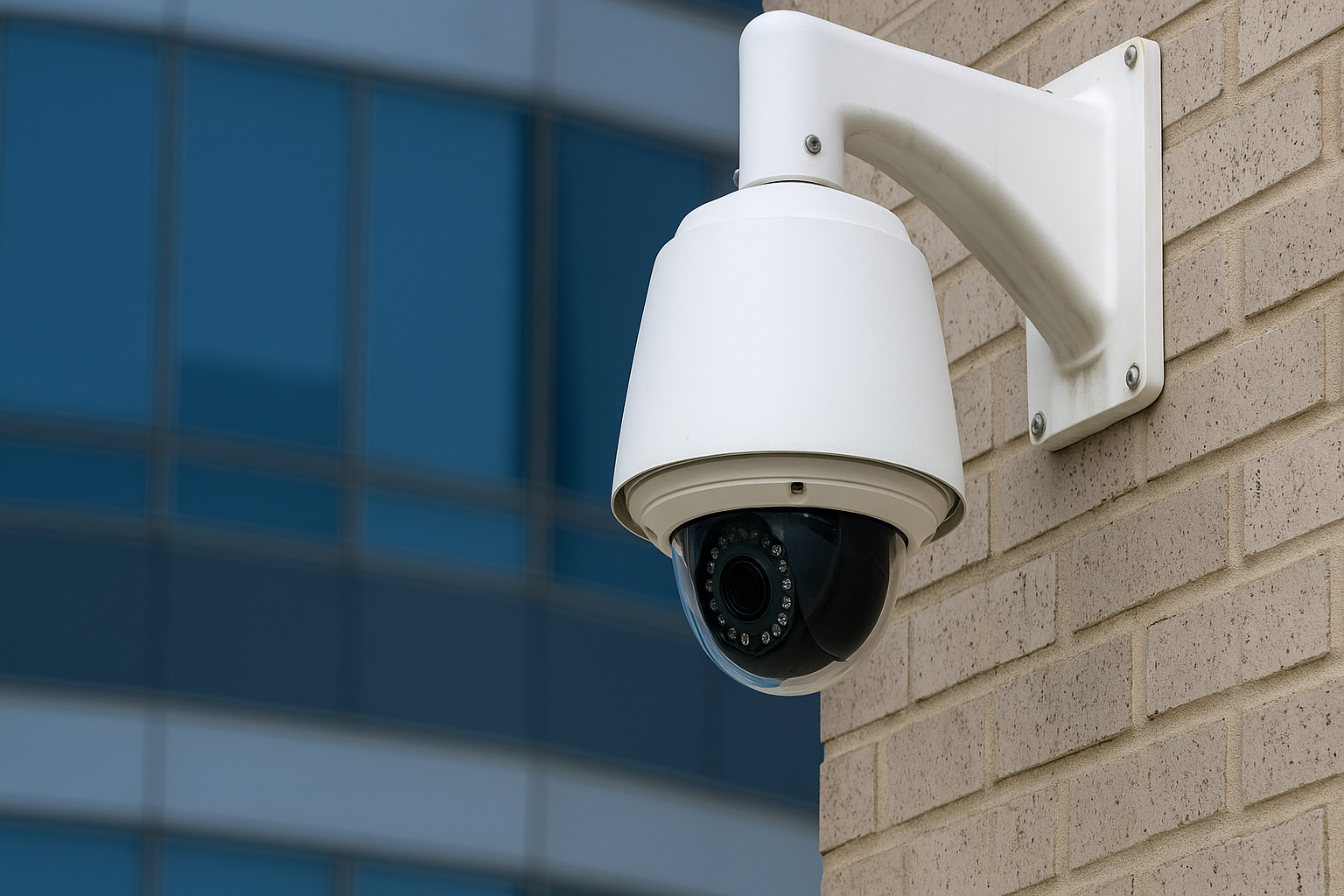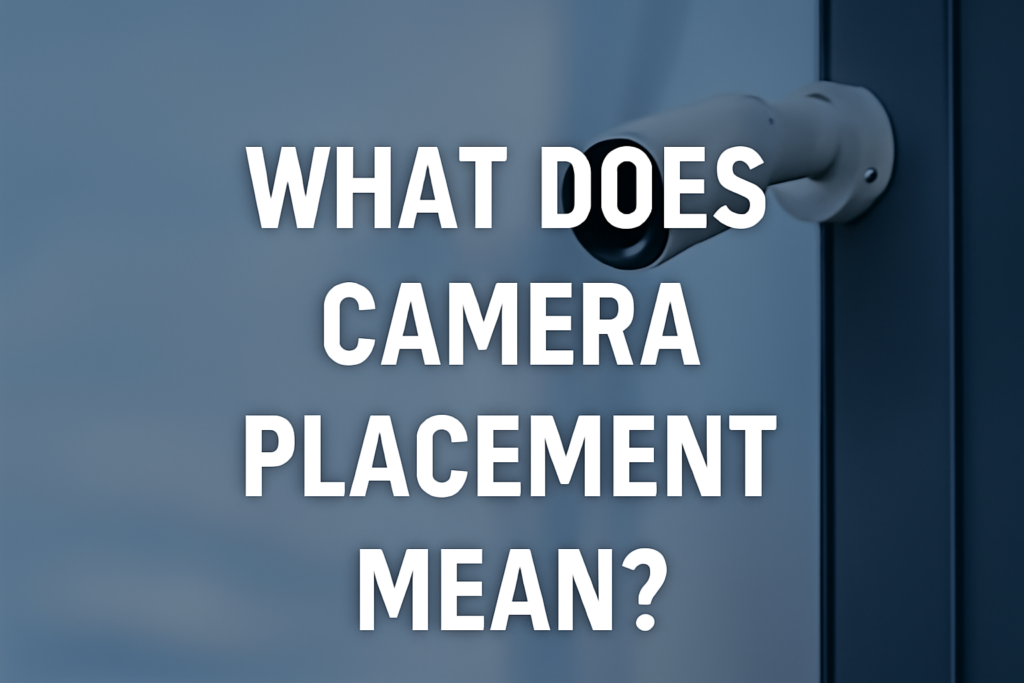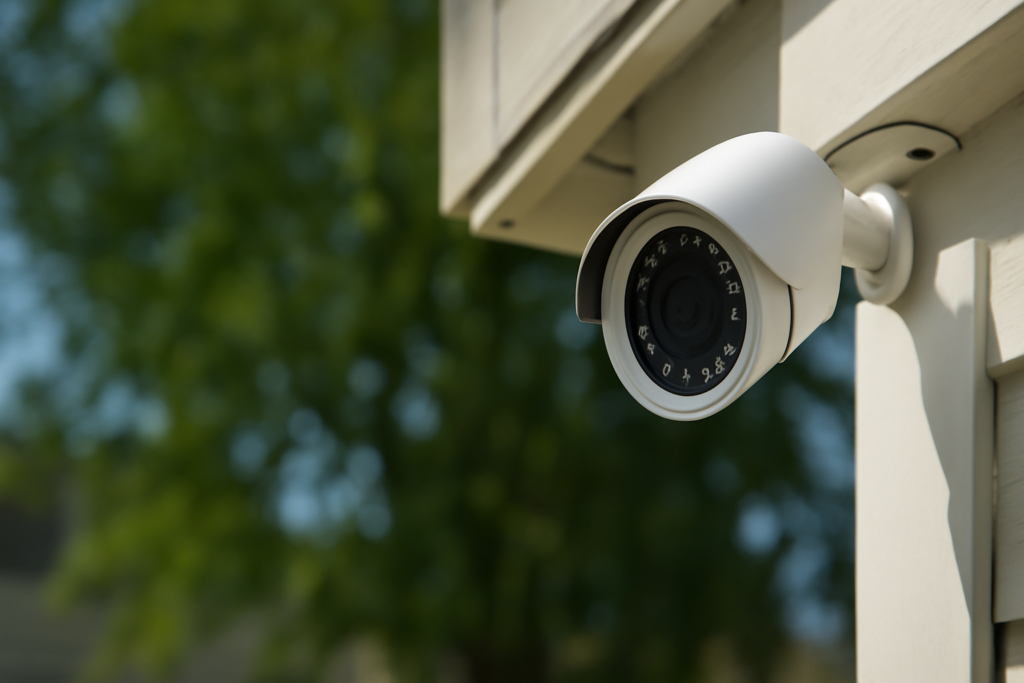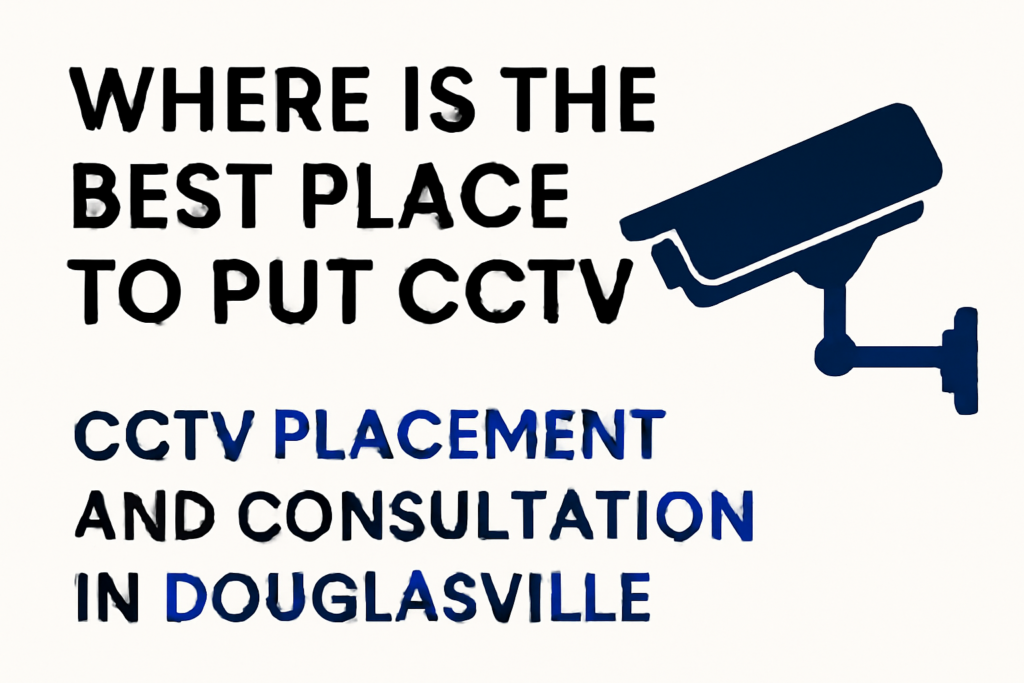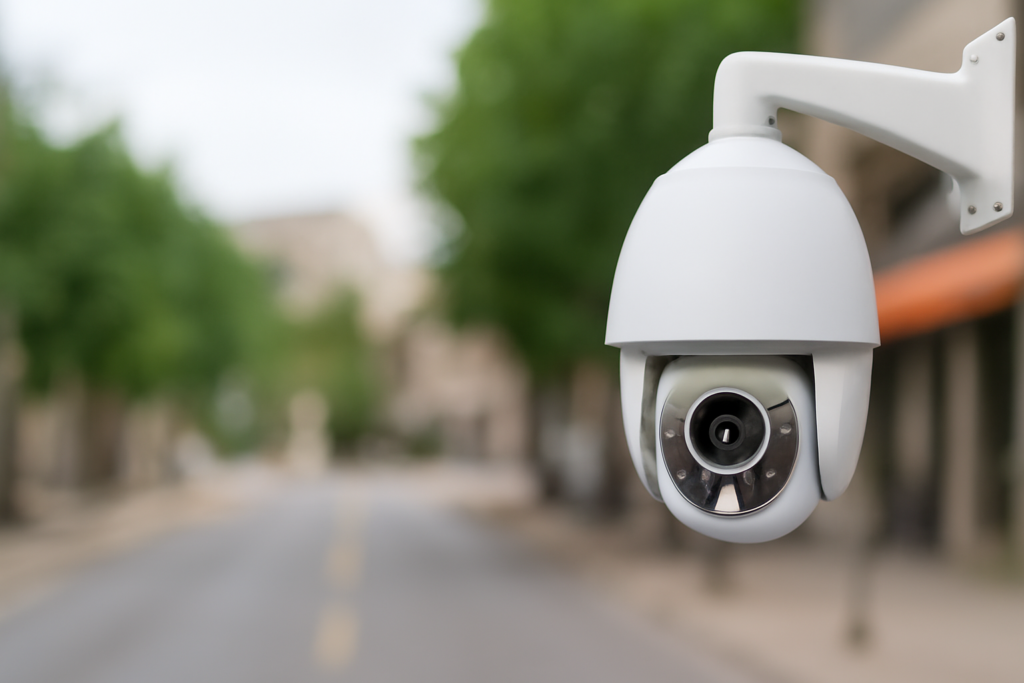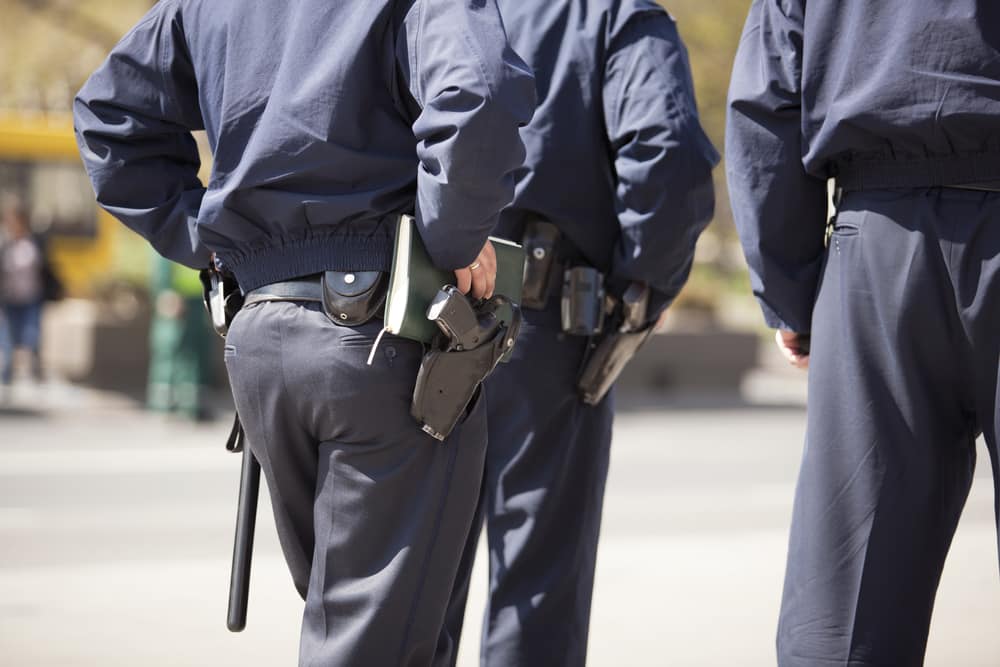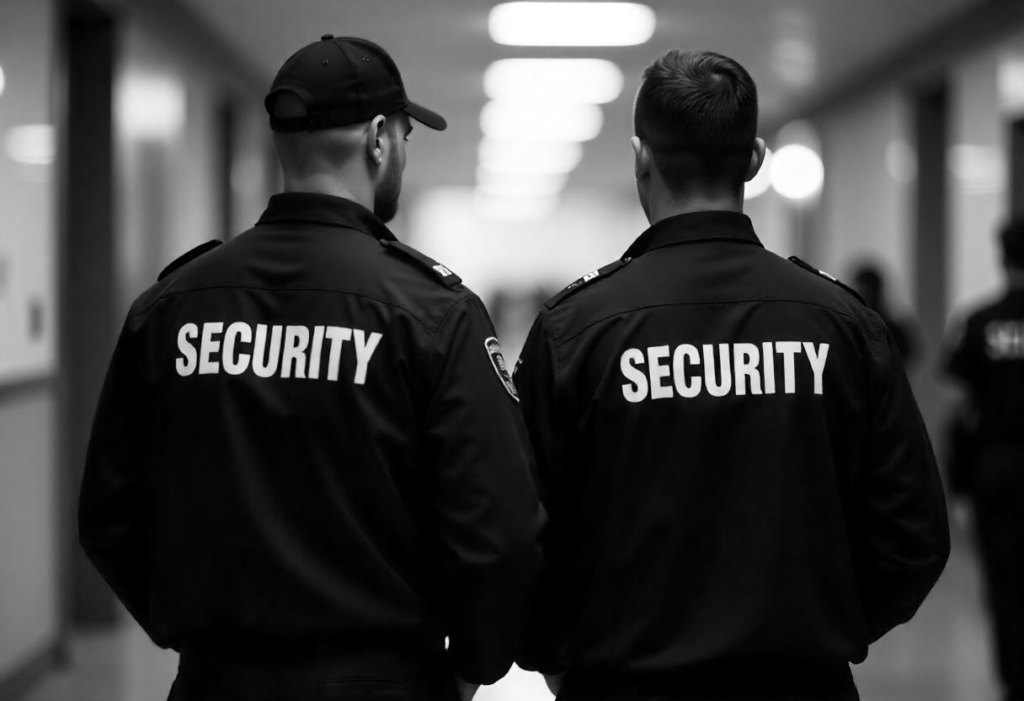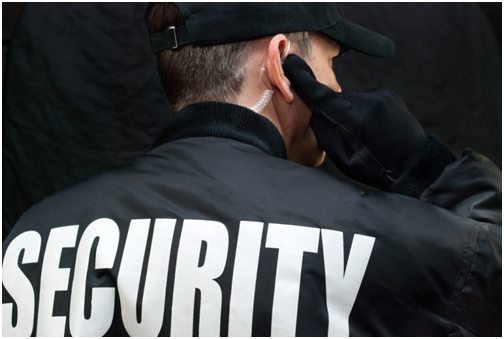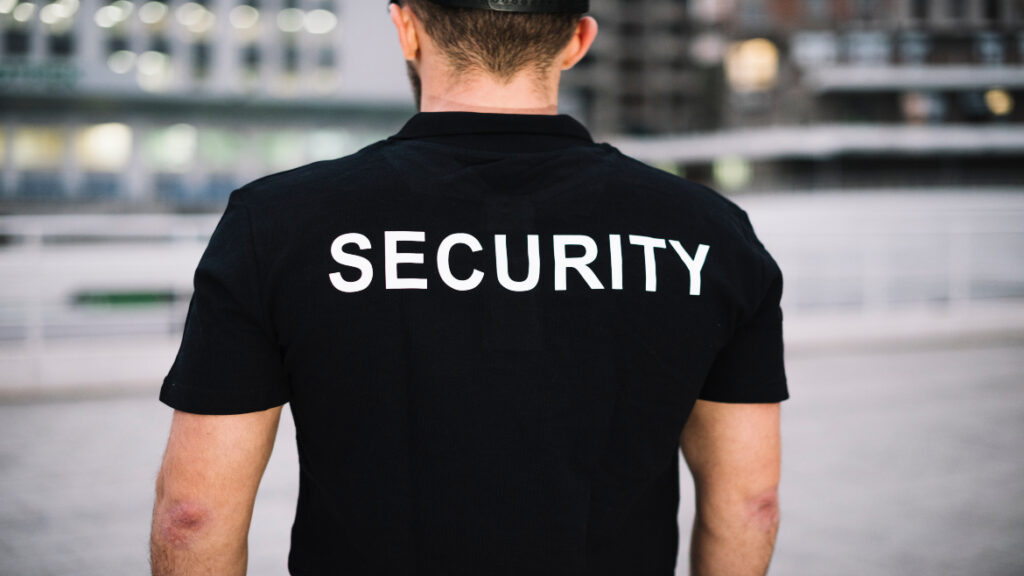Security is a top priority for any business or property owner. One of the best ways to secure your property is by using security cameras. However, the key to effective security camera placement lies in careful planning and strategic positioning. If you are looking for CCTV Placement And Consultation in Douglasville, this article will guide you through the necessary steps to ensure optimal placement of your security cameras.
1. Understanding the Importance of Proper Camera Placement
Proper security camera placement is essential to ensure that the cameras cover all critical areas of your property. A good security camera system can deter crime, monitor high-traffic areas, and provide evidence in case of incidents. Poor placement, on the other hand, can lead to blind spots, gaps in coverage, and an overall ineffective security system.
When planning for CCTV Placement And Consultation in Douglasville, it’s crucial to keep a few factors in mind:
- The Type of Property: Residential or commercial properties have different security needs.
- The Layout of the Area: Each building or area might require different strategies for optimal camera placement.
- Security Concerns: The placement should address specific concerns like burglary, vandalism, or trespassing.
2. Key Factors to Consider in Camera Placement
Before placing your CCTV cameras, there are several key factors you should consider:
2.1 Field of View
A security camera’s field of view determines how much area it can cover. Wide-angle lenses can cover larger spaces, but the footage quality might reduce at greater distances. Narrow-angle lenses offer better detail for smaller spaces but cover less area. When considering CCTV Placement And Consultation in Douglasville, it’s important to choose cameras with the right field of view for each area of your property.
2.2 Camera Type
There are several types of security cameras available, and each has its advantages. Common types include:
- Dome Cameras: These are often used in businesses because they are discreet and can cover a large area.
- Bullet Cameras: They are ideal for outdoor use and can cover longer distances.
- PTZ Cameras (Pan-Tilt-Zoom): PTZ cameras allow you to move the camera’s field of view remotely and zoom in on details.
When consulting for CCTV Placement And Consultation in Douglasville, experts can guide you in selecting the right camera type for your specific needs.
2.3 Camera Placement Height
The height at which you install the camera plays a critical role in its effectiveness. Ideally, cameras should be placed at a height of 8 to 10 feet, which prevents tampering while still allowing the camera to capture details. Installing cameras too high can result in a lack of detail, while cameras installed too low can be easily tampered with.
2.4 Lighting Conditions
Lighting can significantly impact the effectiveness of security cameras. Low-light environments might require cameras with infrared (IR) capabilities. On the other hand, brightly lit areas may not need special lighting. Understanding the lighting conditions in each area will help in determining the placement of your cameras and whether you need additional lighting or cameras with night vision.
3. Effective Security Camera Placement Locations
When planning your security system, consider the following key areas for camera placement:
3.1 Entrances and Exits
Doors and windows are common entry points for intruders. Ensure that your cameras capture clear footage of anyone entering or exiting your property. It’s recommended to place cameras near the main entrance, back doors, and any side or service entrances. CCTV Placement And Consultation in Douglasville often includes strategic placement around entry points to ensure no one can gain access without being recorded.
3.2 Parking Lots and Garages
For both residential and commercial properties, parking lots and garages are critical areas to monitor. If your property has a parking lot or garage, installing cameras to monitor these areas can help prevent theft or vandalism. A good camera system will ensure that all vehicles are clearly visible.
3.3 Hallways and Staircases
Hallways and staircases can be ideal places for intruders to hide. Make sure to place cameras to monitor these areas, especially if they provide access to private or restricted spaces. CCTV Placement And Consultation in Douglasville can assist you in determining the best angles to capture activity in hallways and staircases.
3.4 Windows and Rooflines
Windows and rooflines are often overlooked in security planning but are frequent points of entry for burglars. Installing cameras to monitor windows, particularly on the ground floor, will help you keep an eye on suspicious activity. You can also place cameras along the roofline to detect potential break-ins.
3.5 Perimeter and Boundaries
For larger properties or commercial establishments, perimeter security is vital. You should place cameras around the perimeter of your property, covering fences, gates, and other boundary points. A solid perimeter camera system will help you detect trespassing before it becomes a larger issue.
4. Planning for Outdoor Cameras
Outdoor cameras require special consideration due to weather conditions, lighting, and distance. When planning for outdoor camera placement, consider the following:
- Weatherproof Cameras: Ensure that the cameras you choose are rated for outdoor use and are weatherproof.
- Protection from Vandalism: Cameras should be placed in locations that are less likely to be tampered with, such as under eaves or inside protective casings.
- Coverage of Key Areas: Make sure to cover areas like entryways, pathways, parking lots, and any potential hiding spots.
For CCTV Placement And Consultation in Douglasville, experts can provide insights into the ideal locations for your outdoor cameras and help ensure that they are well-protected.
5. Best Practices for CCTV Camera Placement
When planning your security camera system, here are some best practices to ensure optimal performance:
5.1 Avoid Obstructions
Ensure that the camera’s line of sight is unobstructed by objects like trees, walls, or signs. Any obstruction can block the camera’s view and reduce its effectiveness.
5.2 Use Overlapping Coverage
To avoid blind spots, consider overlapping the coverage areas of your cameras. This ensures that if one camera misses something, another one will catch it.
5.3 Consider Angles and Views
Pay attention to the camera’s angle and its view of the area you want to monitor. Don’t just aim cameras directly at the area of interest—try to capture a wider view to ensure nothing is missed.
5.4 Regular Maintenance
Cameras, especially outdoor ones, need to be maintained regularly to ensure they continue functioning properly. Clean the lenses periodically and inspect for any damage or tampering.
6. FAQs on CCTV Camera Placement and Consultation
- How many cameras do I need for my property?
The number of cameras depends on the size of your property and the areas you want to monitor. A professional CCTV Placement And Consultation in Douglasville can assess your needs and provide a tailored solution. - Can I install security cameras myself?
While DIY installation is possible, it’s best to consult with experts to ensure proper placement and optimal coverage. - Should I place cameras inside or outside my home?
It’s recommended to have both indoor and outdoor cameras for complete security coverage. - How do I prevent my cameras from being tampered with?
Place cameras out of easy reach, use protective casings, and consider using dome cameras that are less obvious to tamper with. - What’s the best height for installing security cameras?
Security cameras should be installed at a height of 8 to 10 feet to prevent tampering while capturing high-quality footage. - Do I need cameras with night vision?
If your property has areas with low light, night vision cameras are essential for clear footage during the night. - Can I monitor my security cameras remotely?
Yes, most modern CCTV systems allow for remote monitoring via smartphones or computers. - How do I protect my cameras from weather damage?
Use weatherproof cameras and install them in protected areas, such as under eaves or in protective enclosures. - Can I use CCTV cameras to monitor my employees?
Yes, CCTV cameras can be used to monitor employees, but be sure to comply with local privacy regulations. - How can I improve my CCTV system’s effectiveness?
Ensure proper camera placement, use high-quality cameras, and regularly maintain your system to ensure it’s functioning optimally.
7. Conclusion
Effective CCTV camera placement is a critical component of any security system. By taking the time to plan out the strategic locations for your cameras, you can protect your property, deter crime, and ensure the safety of those inside. Whether you are considering CCTV Placement And Consultation in Douglasville or already have a system in place, understanding these essential principles will help you maximize the effectiveness of your security cameras.


